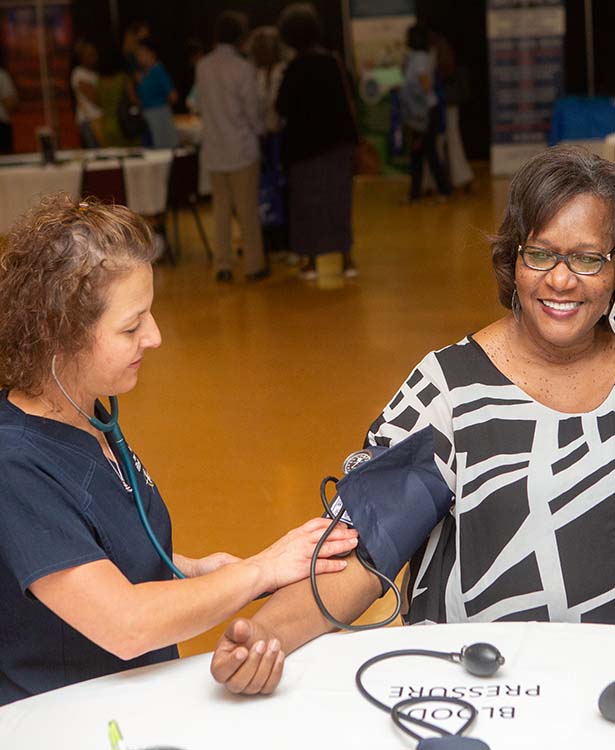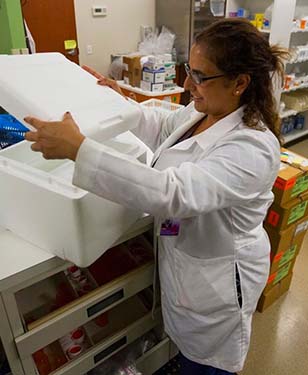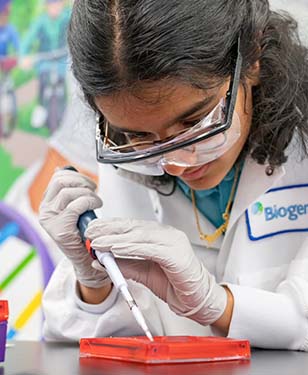More than 33 million people worldwide1 live with Alzheimer’s disease (AD). In the U.S., AD disproportionately impacts Black, African American, Hispanic and Latino people,2 yet historically, clinical trials have not always reflected the epidemiology of the disease.2 To develop effective treatments for all those living with this disease, we believe clinical research must include diverse communities.
“One of the biggest barriers to reflect representation in clinical research is that people from diverse communities are not being approached about potentially participating, so they are simply not aware,” says Kate Wilson, Biogen’s Head of Clinical Trial Diversity. “To drive the kind of research that can support positive health outcomes for all, we want more people to know they have opportunities for care that may include clinical research. Awareness is the first step in enabling more people to make more informed choices for themselves.”
In 2023, Biogen worked with K2 Medical Research (K2) to pilot a new approach to reaching underrepresented communities with an innovative Mobile Research Unit (MRU). The MRU reaches underserved and underrepresented communities in central Florida. By literally meeting people where they are – at senior health fairs, faith-based and community events, lunch-and-learn seminars and more – we are working to break down barriers to health access.
With support from Biogen, the K2 Mobile Research Unit brings health services and education to underserved communities.
The mobile units have become a familiar and trusted presence, led by a diverse team who share the language and cultural background of the communities they serve. As part of the program, MRU staff engage with residents, providing AD education, memory testing and biomarker screening right on the bus. Based on pre-screening results, eligible participants, if interested, can make an appointment at the clinical research site location for additional evaluation and potential screening for AD studies.
“This work is urgent because health equity is urgent. The clinical development process must include trials with meaningful representation of the patient populations that will ultimately receive treatments, if commercially approved,” says Kate. “We also need people to help us conduct the research that will ultimately help them if there ever comes a time when they need treatment. We hope this outreach will change the trajectory of Alzheimer’s research for all patients and their families.”
Nearly 100 community events were held in 2023, pre-screening 834 potential study participants, with 62% representing Black and Hispanic populations. Hundreds of people have already been offered the chance to participate in Alzheimer’s research, showing that a commitment to ongoing education and engagement can build trust. One 57-year-old participant said, “I felt truly cared for during my screening. It’s amazing how much you can learn about your brain health in such a short visit.”
“This work is urgent because health equity is urgent. The clinical development process must include trials with meaningful representation of the patient populations that will ultimately receive treatments, if commercially approved.”
— Kate Wilson, Biogen’s Head of Clinical Trial Diversity
“Members of the community tell us they would never have participated if the MRU wasn’t right there outside their house, church or community center,” says Sandra Carmona Torres, the Executive Director of Patient Engagement, Marketing & Diversity at K2. “They would not come out to the clinic if we didn’t build that initial trust with them right in their own backyard.”
Biogen has a similar outreach program in Washington, D.C., where we are connecting with diverse communities to identify patients living with lupus for potential participation in clinical trials. Through a collaboration with National Minority Quality Forum (NMQF), we engaged local community and faith-based organizations to educate, empower and enable underrepresented community members with greater access to local healthcare resources, including clinical research opportunities in their area. Inspired by the success of this approach, we aim to replicate this model in additional regions of the U.S., working to bridge the gap between underrepresented populations and potentially life-changing research.
1. More than 55 million people live with dementia worldwide. Alzheimer’s contributes to 60–70% of cases. (60% = 33M).
2. 2023 Alzheimer’s Disease Facts and Figures.





